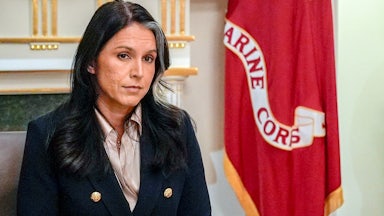What happens when you call a 5-year-old Black child a racial slur in public? If you’re Shiloh Hendrix of Rochester, Minnesota, you apparently get rewarded with more than $700,000 in donations.
In case you missed it, a video went viral last week showing Hendrix, a white woman, admitting to using the n-word against a young Black child at a public park. When confronted by Sharmake Omar, the man recording the video, she doubled down, saying, “If that’s what he’s going to act like,” as if racist slurs are an appropriate response to a child allegedly going through a diaper bag.
A grown woman used a racist slur against a 5-year-old, defended it on camera, and now has raised nearly three-quarters of a million dollars on GiveSendGo. This is the most grotesque example I’ve seen recently of what some people call “vice signaling”—the conservative movement’s twisted mirror image of virtue signaling, where people donate money specifically to show support for reprehensible behavior.
On her GiveSendGo page, which initially sought a modest $20,000 before rapidly increasing to a goal of $1 million, Hendrix claims she’s in a “dire situation” because her personal information has been leaked online. “I fear that we must relocate,” she wrote, claiming she and her family have received threats.
But here’s the thing: There’s no evidence that her address has actually been “leaked,” as she claims. And even if it had been—which to be clear, I’m not advocating for—the appropriate response would be filing a police report, not raising nearly a million dollars. A new apartment’s security deposit and first month’s rent isn’t a $700,000 expense, last I checked.
This isn’t just about one racist woman in Minnesota. It’s about a pattern that’s played out repeatedly in recent years—a sort of patronage system for bigotry that’s become embedded in conservative fundraising culture.
We saw similar dynamics with Kyle Rittenhouse, Daniel Penny, and others who’ve become right-wing causes célèbres. The playbook is simple: Do or say something awful, get rightfully called out for it, claim victimhood, and watch the money roll in from people who want to show their support for what you did while pretending it’s about “free speech” or “fighting cancel culture.”
As MSNBC’s Ja’han Jones put it, “The idea of doling out money, particularly in an economy as unstable as ours, to support a woman accused of blatant racism may seem absurd to some—and I certainly won’t argue against that framing—but the fact that conservatives are rallying around her speaks to the victimhood mindset that’s gripping today’s Republican Party.”
Will Sommer of The Bulwark noted that some conservatives are trying to draw parallels to a fundraiser for Karmelo Anthony, a Black student charged with murder in the stabbing death of Austin Metcalf. White nationalist Nick Fuentes specifically referenced Anthony’s fundraiser, tweeting, “So I don’t want to hear ONE WORD about the Shiloh Hendrix fundraiser. Either everybody gets to be tribal or nobody does.”
It’s a false equivalence, of course. Anthony’s case involves a serious criminal charge that will require substantial legal defense. Hendrix, on the other hand, is fundraising simply because she got caught being racist on camera.
What’s particularly disturbing about this phenomenon is how it creates financial incentives for public displays of bigotry. When calling a 5-year-old the n-word can net you $700,000, we’ve created a perverse reward system.
GiveSendGo, the self-described “Christian” crowdfunding platform hosting Hendrix’s campaign, has become the go-to for these sorts of fundraisers. The site eventually had to restrict comments on Hendrix’s page due to the flood of overtly racist remarks from donors, but it’s still happily processing the payments. Its founder, Jacob Wells, offered the weakest possible response, saying the company “does not endorse or condone the personal views or actions of individual campaign organizers or their supporters, nor do we control the motivations of donors.”
Just taking a cut of the proceeds while shrugging off responsibility, I guess.
Some conservative figures have expressed discomfort with the whole situation. Anti-transgender activist Riley Gaines, for instance, questioned, “What’s the goal in rewarding this?” and Aaron Prager worried that supporting Hendrix would only reinforce perceptions that Republicans are racist.
But these voices of reason are drowned out by the likes of YouTuber Tim Pool, who framed the fundraiser’s success as evidence that “white guilt” is “largely over.” Red Scare podcast host Anna Khachiyan justified supporting Hendrix “on principle” to fight against what she called “gay race communism.” (Yes, really.)
This isn’t just about one incident in Rochester, Minnesota, though the local implications are serious.
The broader issue is how social media and crowdfunding platforms have created ecosystems where being publicly racist can be financially rewarding. Where doing the wrong thing isn’t just excused but celebrated and incentivized.
Ultimately, Hendrix’s windfall represents something deeply broken in our politics and culture. It shows how easily prejudice can be monetized; how readily people will open their wallets to support behavior they know is wrong but secretly endorse.
It’s not about free speech or fighting cancel culture or any of the other fig leaves being used to justify this. It’s about a woman who called a 5-year-old autistic child a racial slur, doubled down when confronted, and is now being rewarded with more money than many Americans will see in a decade.
If that doesn’t make you sick to your stomach, I don’t know what would.






